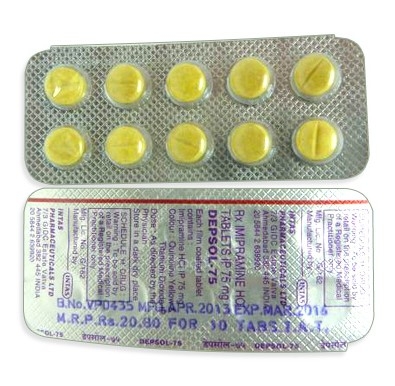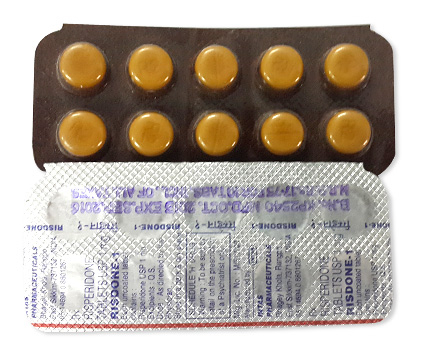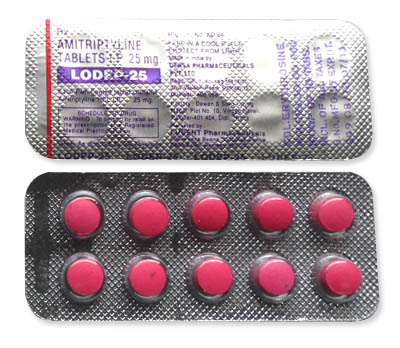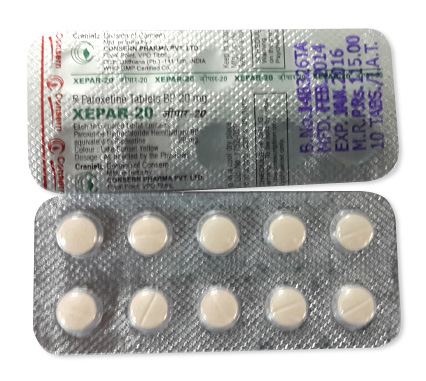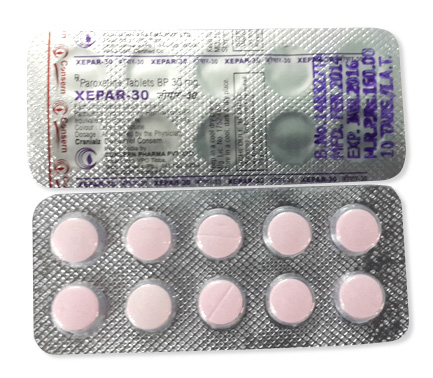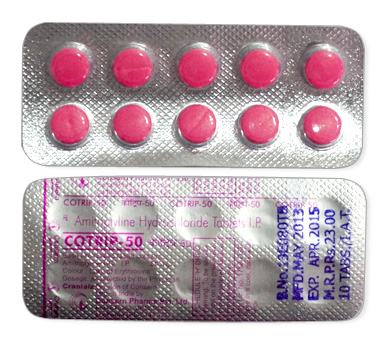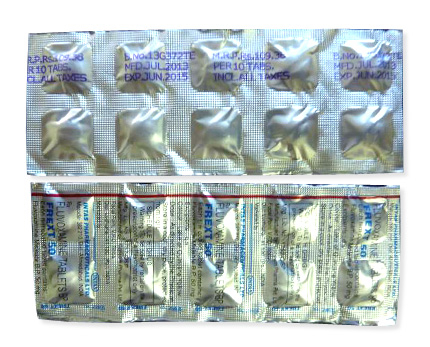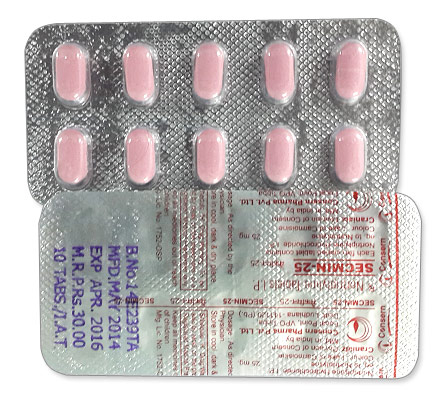Eskalith
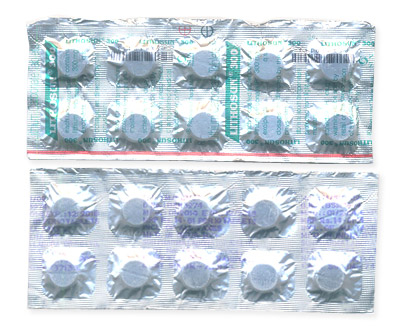
Eskalith
- Eskalith (lithium carbonate) requires a prescription (Rx) in all markets. While the Eskalith brand is discontinued in the U.S., generic lithium carbonate products (150 mg, 300 mg, 600 mg capsules/tablets; solution) and alternative brands like Lithobid are available. Our pharmacy may offer options, subject to local regulations.
- Eskalith is a mood stabilizer used primarily to treat acute mania and for maintenance treatment of bipolar disorder. It modulates neurotransmitter signalling and inhibits inositol monophosphatase, resulting in mood stabilization and reduced manic episodes.
- The usual dosage for acute mania ranges from 600–900 mg/day in 2–3 divided doses initially, adjusted to target serum lithium levels of 0.6-1.2 mEq/L. Maintenance therapy typically ranges from 600–1200 mg/day (2–3 doses) to maintain serum levels of 0.6-1.0 mEq/L. Dosage must be highly individualized.
- Lithium carbonate is administered orally as capsules (150 mg, 300 mg, 600 mg), immediate-release tablets (300 mg), controlled-release tablets (450 mg), extended-release tablets (Lithobid 300 mg), or oral solution (300 mg/5 mL).
- Peak plasma levels occur about 1-4 hours after regular doses and 4-12 hours after extended-release doses. However, the full therapeutic effect for mood stabilization in acute mania typically develops gradually over 1-3 weeks of treatment.
- The duration of action spans approximately 24 hours for regular formulations. Sustained-release forms like Eskalith CR are designed for more consistent levels over 24 hours. Lithium has a cumulative effect; its therapeutic action depends on maintaining stable serum levels for long-term management (years).
- ALCOHOL WARNING: Alcohol consumption must be avoided while taking Eskalith. Alcohol increases the risk of lithium toxicity by causing dehydration and worsening side effects like sedation and cognitive impairment.
- The most common side effects include fine hand tremor, increased thirst (polydipsia), increased urination (polyuria/nocturia), nausea, mild gastrointestinal upset, mild fatigue, weight gain, and muscle weakness.
- Would you like to try Eskalith lithium carbonate? It may be available without prescription in specific countries through our pharmacy (subject to local regulations).
Basic Eskalith Information
| Attribute | Details |
|---|---|
| International Nonproprietary Name (INN) | Lithium carbonate |
| UK Brand Name | Priadel (Lithium carbonate brands available) |
| ATC Code | N05AN01 (antimanic mood stabiliser) |
| Available Forms & Strengths | Tablets: 200mg, 400mg; Liquid: 509mg/5mL |
| UK Manufacturer | Essential Pharma (Priadel) Multiple UK generic suppliers |
| Prescription Status | Prescription Only (POM) nationally |
| MHRA Approval | Licensed for bipolar disorder management |
Lithium carbonate, known in the UK primarily under the Priadel brand, is a foundational medication for bipolar disorder. In England and Wales, community pharmacists dispense over 500,000 lithium prescriptions annually. While Eskalith isn't currently actively marketed here, the MHRA maintains approval for equivalent lithium carbonate formulations. Generic products are widely accessible through NHS prescribing pathways. All lithium medications are strictly prescription-only, requiring careful psychiatric supervision.
How Eskalith Works In the Body
Lithium stabilises mood by modulating neurotransmitters like serotonin and glutamate. It reduces excessive nerve signalling in the brain that triggers manic episodes. The medication also appears to boost protective proteins in brain cells, explaining its unique suicide-prevention effects seen in bipolar patients.
Absorption occurs fully in the gut within 1-2 hours for standard tablets, while controlled-release versions reach peak concentration at approximately 6 hours. Nearly all lithium leaves the body through kidneys, with complete elimination taking 24-48 hours. Reduced kidney function dramatically slows this process, directly raising overdose risks. Maintaining consistent sodium and fluid levels helps regulate lithium concentration in the bloodstream through this renal excretion pathway.
Important Drug and Food Interactions
Lithium requires cautious management alongside other substances. High-risk combinations include:
- NSAIDs (Ibuprofen, naproxen): Reduce lithium elimination, causing toxicity. Paracetamol is safer for pain relief.
- Diuretics (Bendroflumethiazide, furosemide): May concentrate lithium levels dangerously.
- ACE inhibitors (Ramipril, lisinopril): Can unexpectedly boost lithium concentrations.
- Alcohol: Worsens dehydration and neurological side effects.
Sodium intake critically influences lithium handling. Unexpected sodium reduction - through diet changes, heavy sweating, or vomiting - prevents the kidneys from removing lithium properly. Regularly consuming moderate salt (6g daily) prevents dangerous level fluctuations. Beverages containing caffeine mildly increase lithium removal but should remain consistent. Severely dehydrated individuals risk acute lithium toxicity even at normal doses. Always inform your pharmacist about any new medications or supplements.
Approved and Off-Label Uses of Eskalith
The NHS formally licenses lithium for treating and preventing bipolar disorder episodes. It's a first-line choice for managing mania and reducing recurrent mood swings. Unlike alternative mood stabilisers, lithium uniquely lowers suicide risk in individuals struggling with bipolar illness. This evidence-based benefit supports its continued use despite necessary blood monitoring routines.
Occasionally, psychiatrists might prescribe lithium off-label for certain complex cases. Examples include recurrent depression when antidepressants fail, or cyclical mood patterns falling outside strict bipolar definitions. Such applications should always follow NICE recommendations and involve specialist oversight due to lithium's narrow safety window compared to conventional antidepressants.
Standard Dosage Guidelines
| Treatment Phase | Initial Adult Dose | Target Serum Level | Monitoring Frequency |
|---|---|---|---|
| Acute Mania Treatment | 400-900mg/day in divided doses | 0.8-1.0 mmol/L | Blood tests every 3-7 days |
| Longer-Term Maintenance | 600-1200mg/day | 0.6-0.8 mmol/L | Blood tests every 3 months minimum |
| Older Adults (Over 65) | 300mg daily minimum | 0.4-0.7 mmol/L | Increased frequency based on kidney function |
Dosing follows a "start low, progress slowly" approach, typically initiating treatment at 400mg daily before gradually building to effective doses over several weeks. Exact blood-level targets vary based on clinical need and patient vulnerability. Never adjust dosage without medical guidance, as individual responses vary significantly. Morning dosing minimises nocturia while maintaining evening levels. Tablets should be swallowed whole with ample water during meals to lessen stomach complaints. Ask your psychiatrist for personalized treatment schedules.
Special Population Adjustments for Eskalith
Lithium therapy requires careful adjustment for vulnerable groups due to heightened risks. Elderly patients often experience reduced kidney function and slower medication clearance, so dosing starts lower – typically 150-300mg daily – with target serum levels of 0.4-0.8mmol/L instead of the standard range. Extended-release formulations like Eskalith-CR may help minimise peak concentration side effects. For patients with renal impairment, lithium becomes especially hazardous: routine glomerular filtration rate testing is essential and it should be entirely avoided if eGFR falls below 30mL/min. Mild to moderate impairment demands reduced doses with closer monitoring. During pregnancy, lithium requires extreme caution (pregnancy category D) due to cardiac risks possibly affecting the fetus. Breastfeeding mothers should be advised about infant lithium exposure through milk. Paediatric use for bipolar disorder is reserved for specialists, employing weight-adjusted dosing and vigilant toxicity surveillance due to heightened susceptibility.
Eskalith Contraindications and Precautions
Lithium carbonate carries vital restrictions requiring careful screening before initiation. Absolute contraindications include severe kidney disease where filtration rates are critically low, significant cardiovascular conditions like severe heart failure/block, or sodium depletion disorders due to heightened toxicity dangers. Mandatory pre-treatment testing includes renal function assessment, thyroid hormone levels due to potential hypothyroidism risks, electrocardiograms to detect baseline cardiac issues, and electrolyte panel analysis. Relative precautions demanding heightened surveillance exist for mild-moderate kidney impairment, dehydration-prone patients, individuals with psoriasis or thyroid disorders, and people concurrently taking diuretics or NSAIDs. Sodium-depleting medications can be particularly hazardous, necessitating extra monitoring and dose adjustments. Additionally, conditions causing sodium loss through vomiting or diarrhoea require immediate therapy interruption until stabilisation.
Managing Eskalith Adverse Effects
Lithium side effects exist across a severity spectrum. Common temporary reactions emerging during initial weeks include mild tremors which often reduce with beta blockers, transient nausea eased by taking doses with food, increased thirst managing fluid intake, and mild muscle weakness. Moderate long-term concerns include:
- Weight gain requiring dietary guidance
- Persistent tremors managed via dose reduction or beta blockers
- Hypothyroidism monitored yearly via thyroid testing
- Polyuria needing kidney function observation
Serious effects demand immediate attention: confusion, severe diarrhea/coarse tremors indicating toxicity (serum levels over 1.5mmol/L), reduced urine output signalling kidney involvement, or thyroid abnormalities requiring replacement therapy. Dermatological issues might respond to topical treatments. Key strategies involve hydration without excessive fluid intake, monitoring sodium levels, and gradual dose adjustments rather than abrupt changes.
Essential Monitoring for Eskalith Therapy
Routine surveillance forms the cornerstone of safe lithium prescribing. Serum lithium level monitoring follows strict protocols: twice-weekly tests during initial dosing/titration, weekly checks after dosing modifications, and regularly every 3 months during extended therapy. Additional mandatory testing includes kidney assessments (creatinine, eGFR) every 2-6 months plus thyroid function tests (TSH) annually. Toxicity suspicion requires immediate testing regardless of schedule. Patients should receive clear education about critical warning signs that necessitate urgent medical help:
- Severe diarrhoea/vomiting causing dehydration
- Coarse muscle tremors or twitching
- Slurred speech or walking difficulties
- Extreme drowsiness or confusion
- Unexplained muscle stiffness
Documented communication pathways to report symptoms improve response times, while consistent pharmacy consultations enhance compliance with monitoring routines. Medication reviews should reassess benefits against emerging risks regularly.
Real-World Patient Experiences
Across UK online forums like Reddit and HealthUnlocked, common themes emerge among users taking Eskalith. Many report significant mood stabilization occurring within weeks, describing life-changing reductions in manic episodes. However, nearly half mention persistent challenges like cognitive fog and tremors impacting daily tasks. Weight gain emerges as a major adherence barrier, with some patients describing 10-15kg increases despite dietary efforts.
Most Reported Challenges
- Constant thirst and frequent urination disrupting sleep/work
- Memory lapses affecting professional responsibilities
- Difficulties maintaining stable sodium levels when eating out
- Skin outbreaks creating self-image concerns
Support groups highlight hydration solutions like electrolyte tablets and behavioural adaptations for nocturnal polyuria. Many emphasise mindfulness techniques to counter cognitive effects while stressing the importance of regular serum monitoring to balance effectiveness against side effects.
Alternative Mood Stabilizers Comparison
When lithium proves unsuitable, UK psychiatrists consider alternatives guided by NICE protocols. Each option carries distinct clinical profiles affecting prescribing decisions:
| Medication | Effectiveness Profile | Common Side Effects | Monthly Cost (NHS) |
|---|---|---|---|
| Lithium (Eskalith/generics) | Gold standard for mania; reduces suicide risk | Tremor, thyroid/kidney issues, weight gain | £9-£30 |
| Sodium Valproate | Rapid mania control; migraine prevention | Liver toxicity, hair loss, tremor | £4-£15 |
| Lamotrigine | Superior for depression-predominant bipolar | Skin rashes, dizziness, headache | £8-£25 |
| Quetiapine | Acute episodes; adjunctive therapy | Drowsiness, metabolic changes, dry mouth | £15-£40 |
Cost considerations become relevant during long-term management, though NICE prioritises clinical factors. Lithium remains first-line for classical mania despite monitoring requirements, while lamotrigine gains preference for bipolar II depression. Valproate is avoided in women of childbearing age due to teratogenic risks.
UK Market Access & Trends
The UK lithium market shifted dramatically after GlaxoSmithKline discontinued Eskalith in 2016. Today, generic lithium carbonate dominates NHS prescriptions through suppliers like TEVA and Lupin. Monthly costs range from £9 for standard-release tablets to £30 for specialised prolonged-release formulations.
Community pharmacies typically stock blistered packs of 150-600mg tablets. Dispensing challenges emerged during peak Covid-19 periods when supply chain disruptions caused regional shortages, prompting stricter pharmacy stock controls. Most centres resumed normal availability by late 2021.
Current UK Access Factors
- Standard NHS prescription charge applies (£9.90 per item)
- Dosette box dispensing widely available for impaired memory
- Serum monitoring remains mandatory every 3-6 months
Increase in telehealth consultations facilitated ongoing lithium monitoring during restricted mobility periods. Specialist mood disorder clinics maintain prioritisation pathways for titration support.
Frequently Asked Questions
Q: Can I ever drink alcohol on Eskalith?
A: Strongly discouraged due to dehydration risks doubling toxicity danger even with small amounts.
Q: Will lithium affect my driving license?
A: Dizziness may occur; avoid driving until stable. Legally required to notify DVLA about bipolar diagnosis.
Q: Why are salt levels important?
A: Sodium directly affects lithium concentrations - low salt spikes toxicity while high salt reduces effectiveness.
Q: Can I take painkillers?
A: Paracetamol is safe but avoid NSAIDs (ibuprofen/diclofenac) which dangerously increase lithium retention.
Q: Does caffeine consumption matter?
A: Excessive coffee/tea acts as diuretic - moderate consistent intake prevents lithium level fluctuations.
Q: Are generics equally effective?
A: Yes - all UK-approved generics meet MHRA bioequivalence standards despite brand changes.
Guidelines for Proper Use
Optimal Administration
- Take consistently after meals to prevent nausea
- Split doses morning/evening unless prescribed sustained-release
- Set phone alarms to maintain dosing intervals
Essential Avoidances
- All NSAIDs unless consultant-approved under monitoring
- Low-sodium diets - maintain stable salt intake
- Dehydration triggers - strenuous heat/sports require extra hydration
Common errors include skipping blood tests when "feeling fine" and doubling doses after forgetfulness. Instead: take missed dose when remembered unless nearing next dose. Store tablets away from moisture at room temperature. Report immediately tremors worsening, diarrhoea or muscle weakness suggesting toxicity.
Non-Negotiable Monitoring
- Lithium serum levels every 3 months minimum
- Thyroid/kidney function tests every 6 months
- Weight and symptom tracking journals

